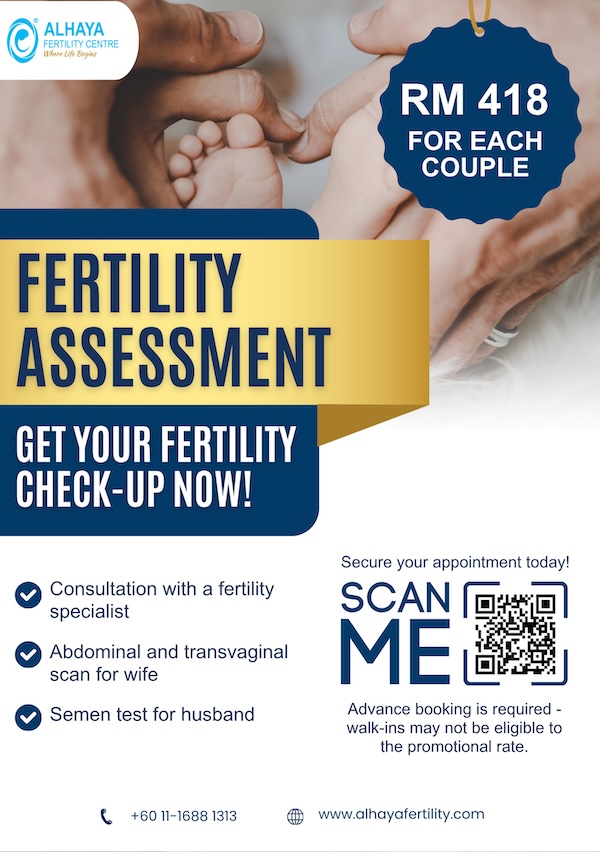Fertility Assessment Package (Only at RM 418)
Get Your Fertility Check-up Now!
Services offered:
- Consultation with a fertility specialist
- Abdominal and transvaginal scan for wife
- Semen test for husband
Advance booking is required – walk-ins not be eligible to the promotional rate.


